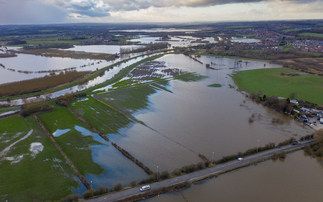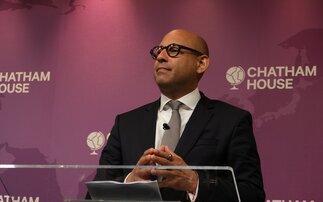Scientists say failure of agreement to immediately implement emissions cuts means geoengineering must be seriously explored, despite the enormous risks it entails
The Paris Agreement, which was last month hailed as a success by diplomats and businesses around the world, is so flawed that mankind must now begin to prepare for geo-engineering of the climate, a group of leading scientists have warned.
The failure of politicians to agree on a mechanism that ensures immediate cuts in greenhouse gas emissions means we will be too late to keep the global temperature rise below the agreed critical limit of 2C, the group wrote in a letter to the Independent published on Friday.
"Our backs are against the wall and we must now start the process of preparing for geo-engineering," the letter said. "We must do this in the knowledge that its chances of success are small and the risks of implementation are great."
The Paris Agreement commits countries to a system of volutary national climate action plans, which will be reviewed every five years in a bid to keep average global temperature increases well below 2C and ideally below 1.5C. However, according to official estimates current national plans will result in temperature increases of almost 3C this century and the letter dismisses the idea far more ambitious plans and targets will be agreed in five years as "naïve".
Geoengineering refers to plans to directly tackle the effects of climate change either by removing CO2 from the atmosphere or blocking the levels of sunlight reaching the earth's surface. Potential geoengineering strategies outlined by scientists include restoration of rainforests to absorb more carbon, as well as artificially whitening clouds or replicating the aerosols from volcanic activity to block sunlight.
However the letter, whose 11 signatories include Professor Stephen Salter from the University of Edinburgh, Professor Peter Wadhams from the University of Cambridge and Dr. John Latham from the University of Manchester, makes clear it is not advocating the use of geoengineering as an alternative to carbon cuts.
Instead, it argues that the high political and environmental risks associated with geoengineering must be made clear and used to challenge the "narrative of wishful thinking" that the group believes dominates international climate talks. "In today's international vacuum on this, it is imperative that our government takes a lead," the letter said.
The letter points out that the Paris Agreement already heavily relies on so-called "negative emissions technologies", such as the idea of using biomass in power stations and then trapping the emissions using carbon capture and storage (CCS).
"This involves rapidly growing trees and grasses faster than nature has ever done on land we don't have, then burning it in power stations that will capture and compress the CO2 using an infrastructure we don't have and with technology that won't work on the scale we need and to finally store it in places we can't find," the letter said. "To maintain the good news agenda, all of this was omitted from the agreement."
It also points to potential dangerous tipping points which could lead to catastrophic climate change "our civilisation will not survive", including the massive amounts of methane clathrates currently trapped in the Arctic sea floor which scientists fear could be rapidly released as the Arctic melts.
The letter came just a day after a new study published in the prestigious academic journal Science presented evidence humanity's impact on the Earth's environment and wildlife has pushed it into a new geological epoch, known as the Anthropocene. The increased release of CO2 into the atmosphere since the industrial revolution because of fossil fuel-burning is one of the main changes that led the authors to the conclusion that a geological era has begun.
This article is part of BusinessGreen's Road to Paris hub, hosted in association with PwC.








